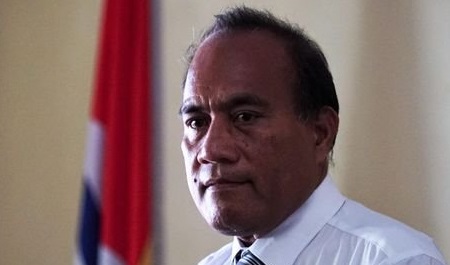Governments of the Syrian Arab Republic and the Republic of Kiribati on Wednesday, July 26 and Friday, July 28, 2017 respectively deposited their instruments of ratification, thereby becoming the 72nd and 73rd future Parties to the Minamata Convention.

Prior to this, the Government of Jamaica on Wednesday, July 19, 2017 deposited its instrument of ratification to become the 71st future Party to the mercury convention.
Hitherto, the Governments of Rwanda, Palau, Thailand, Slovenia and Viet Nam deposited their instruments of ratification, thereby becoming the 66th to 70th future Parties to the mercury treaty.
The depositions were made on Wednesday, June 21; Thursday, June 22; Friday, June 23; and Thursday, June 29, 2017. While Palau deposited on Wednesday and Thailand on Thursday, both Slovenia and Viet Nam did likewise on Friday. Rwanda followed up a week later on Thursday.
Previously, Iran and Estonia had ratified the Convention, which has already entered into force, thanks to the landmark rash of ratifications on Thursday, May 18, 2017 that triggered the entry into force of the mercury accord, having garnered the required 50 ratifications.
On that day, the EU and seven of its member States – Bulgaria, Denmark, Hungary, Malta, the Netherlands, Romania and Sweden – deposited their instruments of ratification at the UN Headquarters in New York, bringing to 51 that day the number of future Parties.
As a result, on August 16 2017, the Convention, which aims at protecting human health and the environment from anthropogenic emissions and releases of mercury and mercury compounds, will become legally binding for all its Parties.
To commemorate the historic development, United Nations Environmental Programme (UNEP), Ministry of the Environment of Japan, Kumamoto Prefecture and Minamata City on Saturday, July 1, 2017 held “Celebrating Event for the Minamata Convention on Mercury – Voice from Minamata towards the Entry into Force” in Minamata City, Kumamoto, Japan.
The 1st Conference of the Parties to the Minamata Convention (COP1) will gather governments, intergovernmental and non-governmental organisations from around the world in Geneva from September 24 to 29, 2017.
The Minamata Convention on Mercury (“Minamata Convention”) is a new international environmental convention for global community to work collaboratively against mercury pollution. The Minamata Convention aims at achieving environmentally sound mercury management throughout its life cycle. The Convention was adopted at the diplomatic conferences held in Minamata City and Kumamoto City in October 2013.
